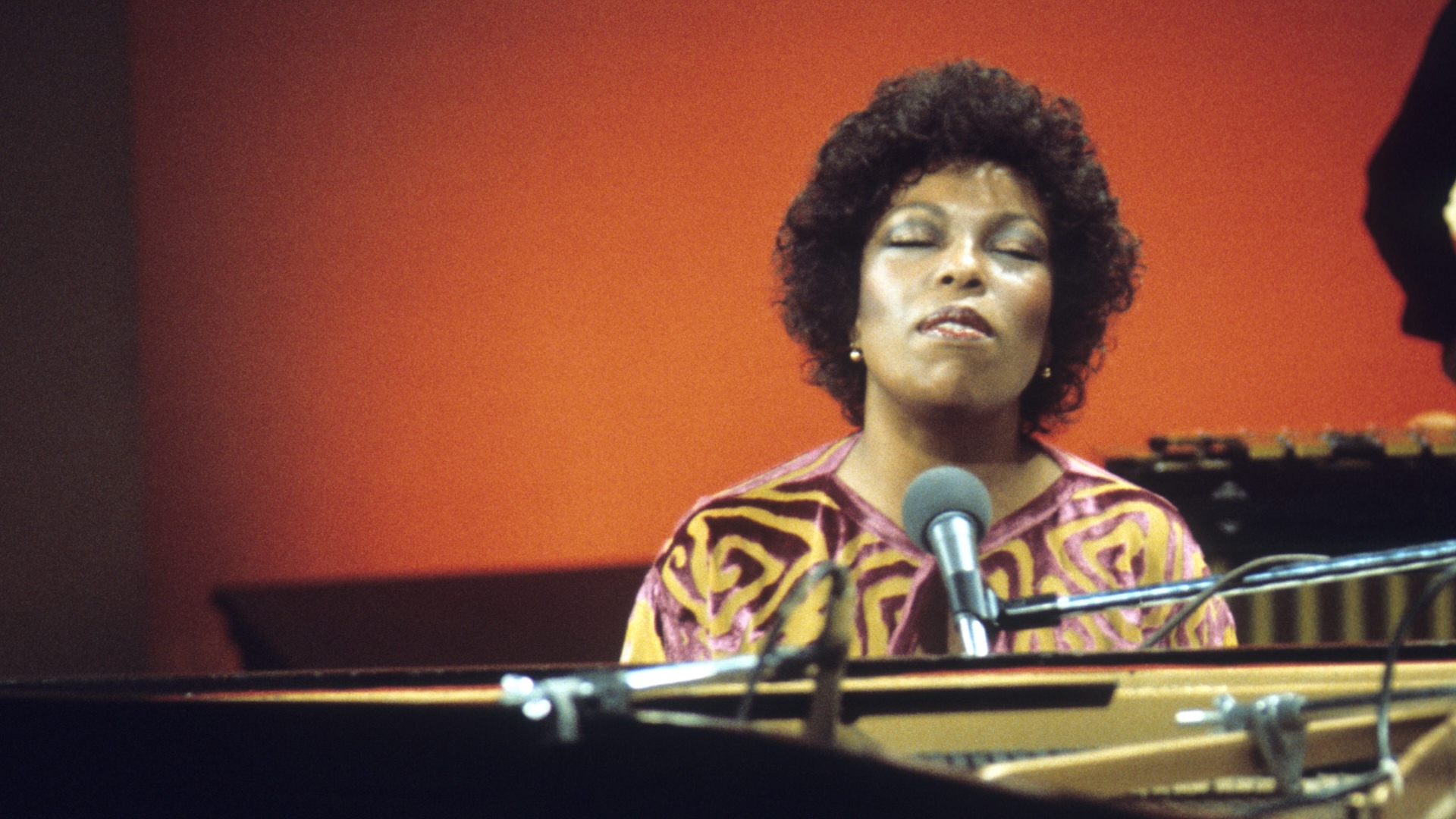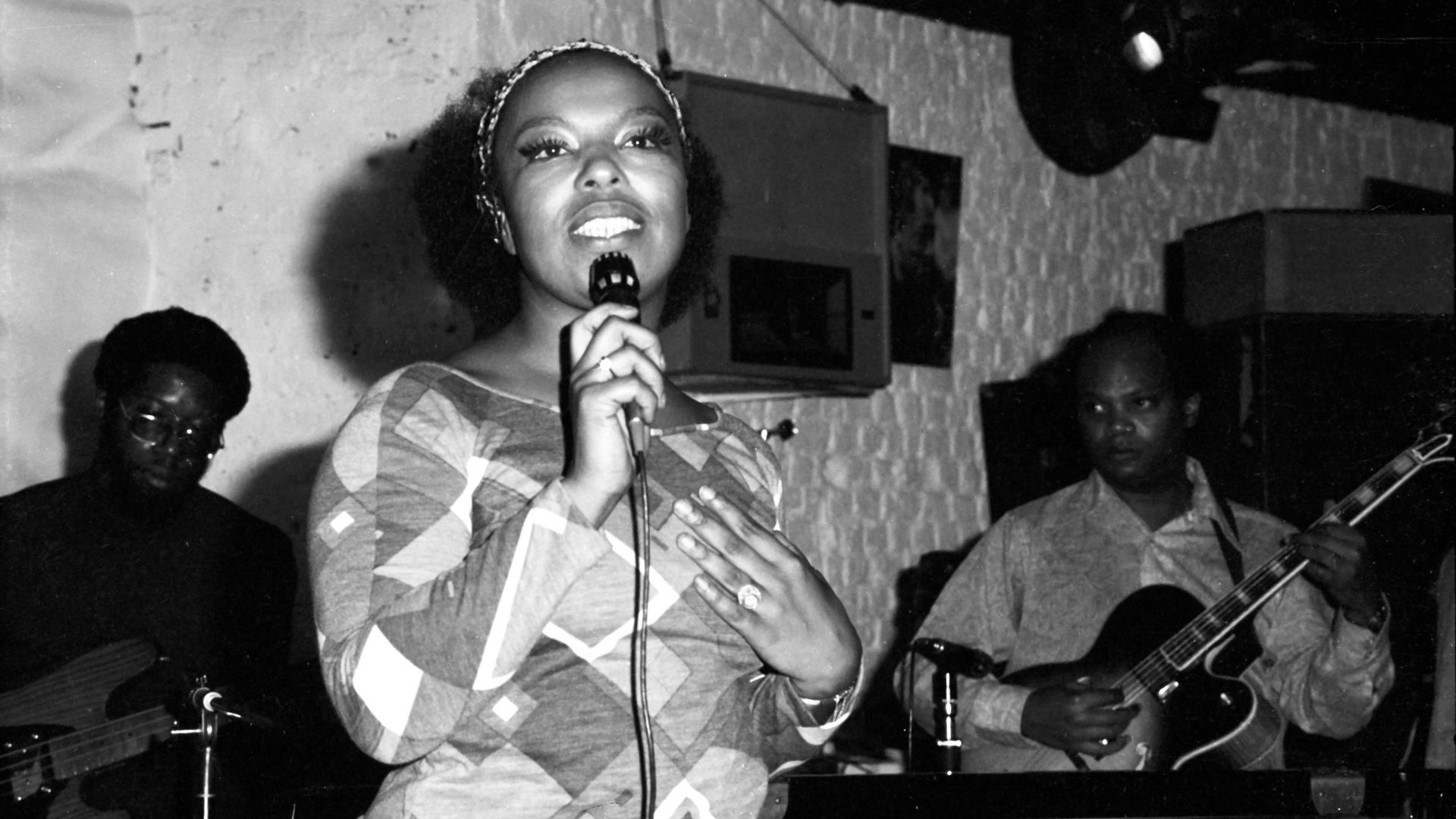The Subtle Eternity of Roberta Flack
On albums like 1975’s Feel Like Makin’ Love, the soul great gave the music the space it needed.
by Marcus J. Moore
On a recent Friday night, I sat on my navy blue velvet couch, marveling at Roberta Flack’s 1975 studio album Feel Like Makin’ Love. It’s late, and I’m supposed to be on my way to a show in the city. But I can’t help sitting there transfixed, staring at the art on my wall as the vinyl spins. In particular, I’m listening to the song “I Can See the Sun in Late December,” the almost-13-minute centerpiece of side A, written by Stevie Wonder. I’ve played this track countless times over the years, and it’s long been my favorite song ever, but it somehow sounds different tonight. The arrangement hits harder; the crescendos and the calm. Flack’s voice, an enchanting mezzo-soprano that equally conveys sorrow and romantic passion, seems to flutter atop the band’s scant electric keys, deep bass drops and stately backing vocals. I keep picking up the needle and dropping it at the song’s beginning, just as the faint bass drum ushers in the ascending composition. I can’t fully explain why the song holds me tonight, but hold me it does, so much so that I miss the gig I was supposed to attend. Staying home and listening to Flack felt like the best move.
But it wasn’t just that song. Feel Like Makin’ Love is full of stunning highs that, to me, make it her best album. The opening track, “Feelin’ That Glow,” is acoustic soul meets psychedelic rock, an uptempo hybrid stomping its way through Rotary Connection and Isley Brothers aesthetics without borrowing too much from either. While I can hear admiration for the kaleidoscopic rhythms of Minnie Riperton and the gutbucket grunge of Ron Isley and company, Flack’s singularity still barrels forward. Through all the clatter comes Flack, sweetly as ever, singing boldly about her sexual desires. Then there are songs like the title track, “Mr. Magic” and “Early Ev’ry Midnite,” late-night slow-burners meant to arouse the senses and the flesh. In each instance, the aura feels overcast, sultry and sentimental, an honest portrayal of raw, human needs without shame or modesty. Flack, a North Carolina-born, Virginia-raised singer, songwriter and producer, is one of the greatest voices of her generation, if not all-time. But within the pantheon of revered soul musicians, I can’t help but feel that she’s underrated. Though she earned her name in the era of Stevie and Marvin Gaye, I would contend that she’s right there with them, her blend of folk and quiet storm R&B a worthy complement to their strongest work. That she wasn’t easily classified perhaps led to her being devalued.
I’ve often wondered why she’s underappreciated. Maybe it’s because she was always so toned-down — stylistically, artistically — compared with her peers. Perhaps it’s what her former drummer Buddy Williams said in the 2023 documentary American Masters: Roberta Flack: “Roberta was a genius, and they never knew what to do with her.” And where some other vocalists might sing over-the-top runs to assert their prowess, Flack would simply sing the song, hitting all the notes without unnecessary theater. She didn’t have to scream her points; she simply said them directly. Flack is a lot like Riperton and Deniece Williams in that regard — an artist whose music did all the talking, with albums that hold up well beyond the release dates. That Feel Like Makin’ Love still resonates today, almost half a century later, speaks to the long-standing impact of the music’s creative ingenuity. That even though it didn’t sell like the first four solo albums in her catalog, it — to me — is the most balanced of all her projects. Albums like First Take and Killing Me Softly had eye-popping singles; Feel Like Makin’ Love was exquisitely self-produced by her alter ego Rubina Flake, with stronger B-sides. Because as much as I love Flack’s work, I’ve always thought that the gold-and-platinum-selling albums were just OK — that the sales were driven by singles like “The First Time Ever I Saw Your Face” and “Killing Me Softly with His Song,” and the other tunes on those LPs didn’t hold up as well.

As I think about Flack today, my mind retreats to 20 years ago, when I first heard her voice billowing from my aunt’s television, via the Clint Eastwood film Play Misty for Me. I still remember time slowing to a crawl, wondering who this was and what made it so captivating. “The First Time Ever I Saw Your Face” might have been the most gorgeous song I’d ever heard to that point, a simple yet ravishing tune that says so much. And I think that’s what I appreciate most about Flack’s music: She can pull you into the arrangement and let you live inside of it. It’s as if you feel the same emotions that Flack feels; you experience the same joys and sadness, the same complications around racism, sexism and homophobia. That’s the greatest compliment one can pay any artist, especially one who — despite the gold trophies — remains misunderstood.
Take the song “Making Love,” from 1982’s I’m the One, as an example: Above delicate Rhodes and light drum taps, Flack sings sweetly of enduring affection. It’s from a big-budget film of the same name, that follows a gay man as he comes out, resulting in the breakup of his marriage to a woman. So when Flack sings “there’s more to love than making love,” not only can you feel the anguish of the film’s two main characters, you feel grounded in their foundation as friends. Those like Flack, who push the margins of what music can be, tend to reap the greatest rewards, and their records lend themselves to deeper study decades later. Now 87 and battling ALS, Flack was focused on arrangements and didn’t always write her own material, but that shouldn’t keep her from the glory enjoyed by white male singers who did the same. Now and always, Flack should be celebrated openly and abundantly. Without caveats and asterisks, and without hand-wringing and subgenres meant to segregate creativity.



